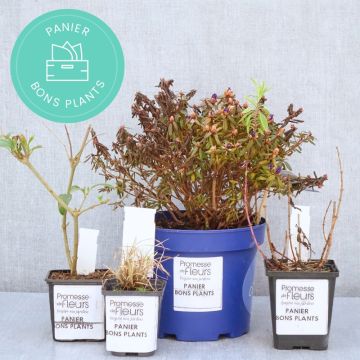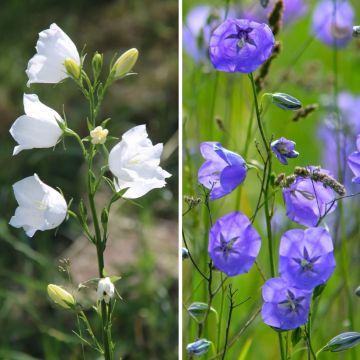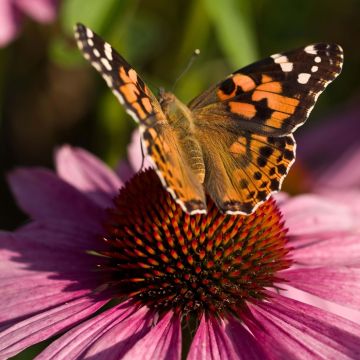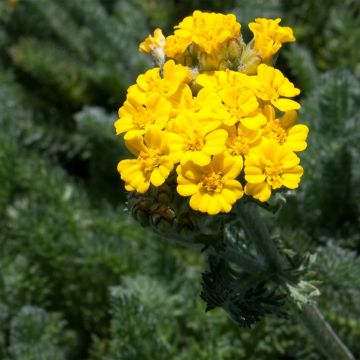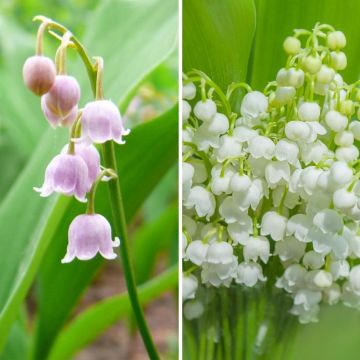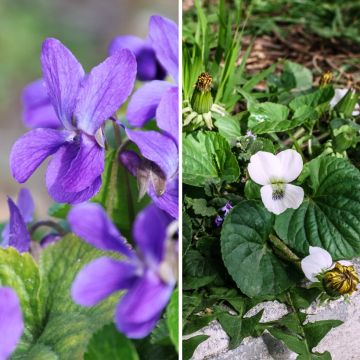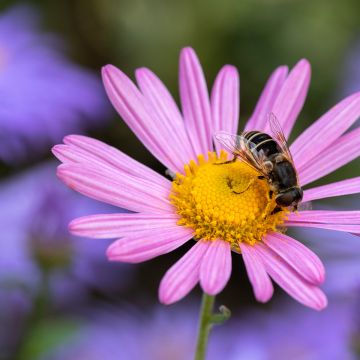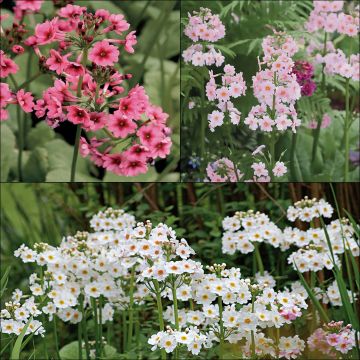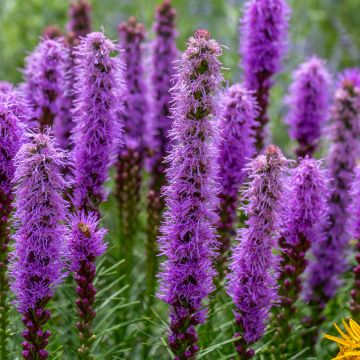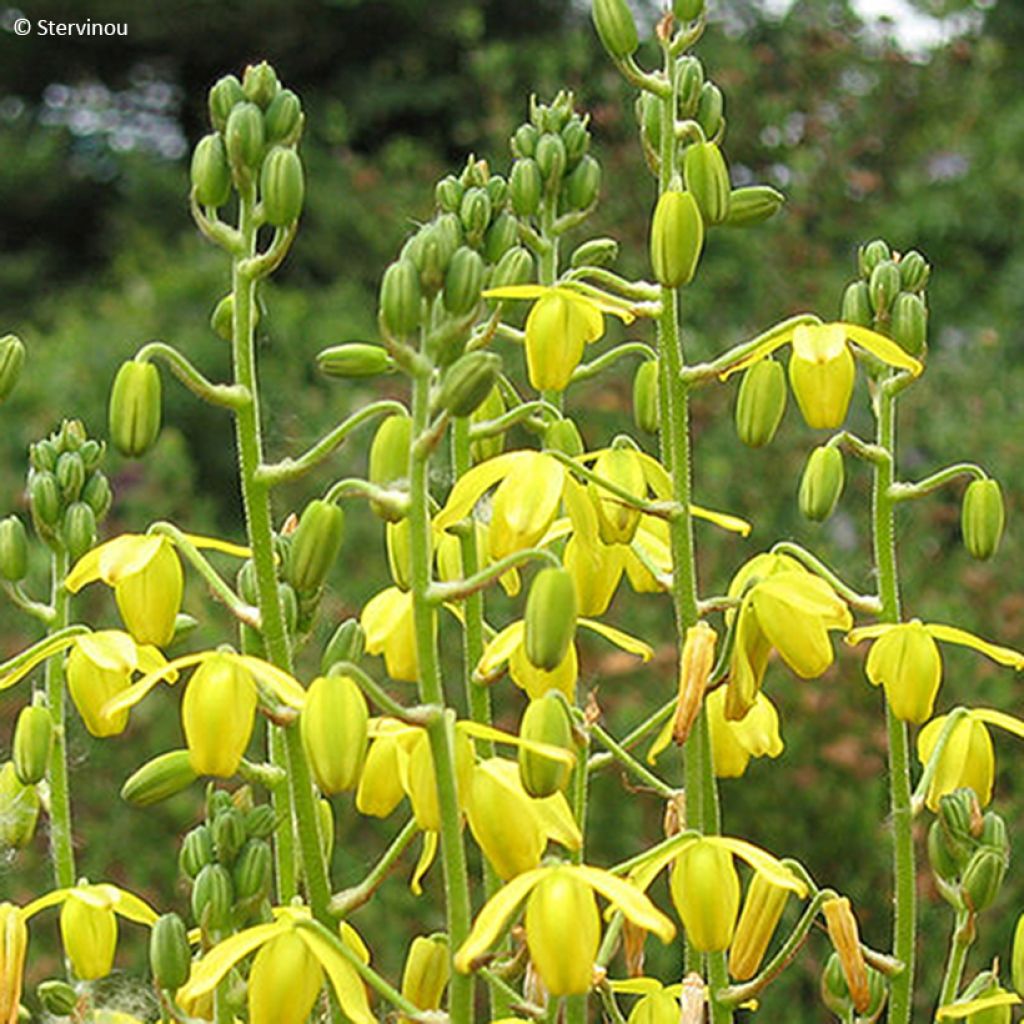

Albuca shawii
Albuca shawii
Albuca shawii
Special offer!
Receive a €20 voucher for any order over €90 (excluding delivery costs, credit notes, and plastic-free options)!
1- Add your favorite plants to your cart.
2- Once you have reached €90, confirm your order (you can even choose the delivery date!).
3- As soon as your order is shipped, you will receive an email containing your voucher code, valid for 3 months (90 days).
Your voucher is unique and can only be used once, for any order with a minimum value of €20, excluding delivery costs.
Can be combined with other current offers, non-divisible and non-refundable.
Home or relay delivery (depending on size and destination)
Schedule delivery date,
and select date in basket
This plant carries a 12 months recovery warranty
More information
We guarantee the quality of our plants for a full growing cycle, and will replace at our expense any plant that fails to recover under normal climatic and planting conditions.
Would this plant suit my garden?
Set up your Plantfit profile →
Description
Albuca shawii is an interesting South African bulb for mild coastal gardens where it can be grown in the ground, in wild or informal scenes. It produces flowering stems in summer adorned with numerous flowers resembling tiny trailing daffodils, with a very bright yellow colour, striped with green, and a scent of almond. In colder regions, it must be grown in a greenhouse or conservatory. A few bulbs in a planter will make a lovely pot for the summer.
Albuca shawii is a plant of the asparagus family. This botanical species is widely distributed in the Drakensberg and Highveld regions, in Natal, and in the eastern part of the Cape, where it grows up to 2400m altitude in rocky areas and mountain meadows. It is dormant in winter, its vegetation emerges in spring and dries up after flowering. It has a bushy and upright habit. The leaves of this plant are linear, fleshy, covered with short and sticky hairs, and very vibrant green. It has aromatic foliage that releases a slight liquorice or anise aroma when touched or crushed. Flowering occurs from late June to early August, although it may be slightly delayed outside the Mediterranean region. From the foliage, flowering stems 30 to 60 cm tall emerge, which elongate as the flowers open. Each stem bears numerous 1.5 cm diameter flowers on a short peduncle. Seeds are produced, but the plant does not become invasive.
We recommend growing Albuca shawii like gladiolus: in the ground with watering in summer, but kept dry in winter. It thrives in partial shade or full sun in sandy or rocky, well-drained soils. Its hardiness does not exceed -5°C at the lowest, in soil which is dry in winter. This small bulb pairs well with small Pentecost carnations (Dianthus gratianopolitanus 'Kahori'), Sisyrinchium, and Thyme.
Report an error about the product description
Flowering
Foliage
Plant habit
Botanical data
Albuca
shawii
Asparagaceae
Albuca elliotii, Albuca granulata, Albuca minima, Albuca trichophylla, Ornithogalum shawii
South Africa
Other Perennials A to Z
View all →Planting and care
Albuca shawii can only be grown in open ground in mild coastal gardens where winters are dry. We advise you to cultivate this bulb like gladiolus or in a pot to provide it with the conditions it likes. Respect the cycle of its vegetation: from autumn to winter, it must be at rest in dry soil. From spring until the end of flowering, it should not lack water, without being in constantly waterlogged soil. It thrives in well-drained, sandy and humus-bearing soils, among stones.
Repot the Albuca shawii every 2 or 3 years in late winter, to separate the bulbs, when it becomes too crowded.
Planting period
Intended location
Care
This item has not been reviewed yet - be the first to leave a review about it.
Haven't found what you were looking for?
Hardiness is the lowest winter temperature a plant can endure without suffering serious damage or even dying. However, hardiness is affected by location (a sheltered area, such as a patio), protection (winter cover) and soil type (hardiness is improved by well-drained soil).

Photo Sharing Terms & Conditions
In order to encourage gardeners to interact and share their experiences, Promesse de fleurs offers various media enabling content to be uploaded onto its Site - in particular via the ‘Photo sharing’ module.
The User agrees to refrain from:
- Posting any content that is illegal, prejudicial, insulting, racist, inciteful to hatred, revisionist, contrary to public decency, that infringes on privacy or on the privacy rights of third parties, in particular the publicity rights of persons and goods, intellectual property rights, or the right to privacy.
- Submitting content on behalf of a third party;
- Impersonate the identity of a third party and/or publish any personal information about a third party;
In general, the User undertakes to refrain from any unethical behaviour.
All Content (in particular text, comments, files, images, photos, videos, creative works, etc.), which may be subject to property or intellectual property rights, image or other private rights, shall remain the property of the User, subject to the limited rights granted by the terms of the licence granted by Promesse de fleurs as stated below. Users are at liberty to publish or not to publish such Content on the Site, notably via the ‘Photo Sharing’ facility, and accept that this Content shall be made public and freely accessible, notably on the Internet.
Users further acknowledge, undertake to have ,and guarantee that they hold all necessary rights and permissions to publish such material on the Site, in particular with regard to the legislation in force pertaining to any privacy, property, intellectual property, image, or contractual rights, or rights of any other nature. By publishing such Content on the Site, Users acknowledge accepting full liability as publishers of the Content within the meaning of the law, and grant Promesse de fleurs, free of charge, an inclusive, worldwide licence for the said Content for the entire duration of its publication, including all reproduction, representation, up/downloading, displaying, performing, transmission, and storage rights.
Users also grant permission for their name to be linked to the Content and accept that this link may not always be made available.
By engaging in posting material, Users consent to their Content becoming automatically accessible on the Internet, in particular on other sites and/or blogs and/or web pages of the Promesse de fleurs site, including in particular social pages and the Promesse de fleurs catalogue.
Users may secure the removal of entrusted content free of charge by issuing a simple request via our contact form.
The flowering period indicated on our website applies to countries and regions located in USDA zone 8 (France, the United Kingdom, Ireland, the Netherlands, etc.)
It will vary according to where you live:
- In zones 9 to 10 (Italy, Spain, Greece, etc.), flowering will occur about 2 to 4 weeks earlier.
- In zones 6 to 7 (Germany, Poland, Slovenia, and lower mountainous regions), flowering will be delayed by 2 to 3 weeks.
- In zone 5 (Central Europe, Scandinavia), blooming will be delayed by 3 to 5 weeks.
In temperate climates, pruning of spring-flowering shrubs (forsythia, spireas, etc.) should be done just after flowering.
Pruning of summer-flowering shrubs (Indian Lilac, Perovskia, etc.) can be done in winter or spring.
In cold regions as well as with frost-sensitive plants, avoid pruning too early when severe frosts may still occur.
The planting period indicated on our website applies to countries and regions located in USDA zone 8 (France, United Kingdom, Ireland, Netherlands).
It will vary according to where you live:
- In Mediterranean zones (Marseille, Madrid, Milan, etc.), autumn and winter are the best planting periods.
- In continental zones (Strasbourg, Munich, Vienna, etc.), delay planting by 2 to 3 weeks in spring and bring it forward by 2 to 4 weeks in autumn.
- In mountainous regions (the Alps, Pyrenees, Carpathians, etc.), it is best to plant in late spring (May-June) or late summer (August-September).
The harvesting period indicated on our website applies to countries and regions in USDA zone 8 (France, England, Ireland, the Netherlands).
In colder areas (Scandinavia, Poland, Austria...) fruit and vegetable harvests are likely to be delayed by 3-4 weeks.
In warmer areas (Italy, Spain, Greece, etc.), harvesting will probably take place earlier, depending on weather conditions.
The sowing periods indicated on our website apply to countries and regions within USDA Zone 8 (France, UK, Ireland, Netherlands).
In colder areas (Scandinavia, Poland, Austria...), delay any outdoor sowing by 3-4 weeks, or sow under glass.
In warmer climes (Italy, Spain, Greece, etc.), bring outdoor sowing forward by a few weeks.






























